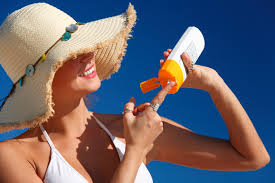 With spring break around the corner, many of our patients will be traveling to warmer climates. We are getting lots of questions about sunscreen: what’s good, how much, when, etc? We hope these sunscreen facts help clear up any questions y…ou may have.
With spring break around the corner, many of our patients will be traveling to warmer climates. We are getting lots of questions about sunscreen: what’s good, how much, when, etc? We hope these sunscreen facts help clear up any questions y…ou may have.
SPF stands for Sun Protection Factor. SPF is determined by a mathematical equation which examines the amount of light needed to induce redness in sunscreen protected skin, divided by the amount of life in unprotected skin is the SPF
How do these numbers affect me? Sunscreen that is SPF 15 will delay the onset of a sunburn in a person who would otherwise burning in 10 minutes to burn in 150 minutes. This allows the person to be out in the sun protected for 15 times longer than they could otherwise.
Are the HIGH SPFs better? While no sunscreen offers 100% protection from UVA and UVB rays, higher SPF sunscreens may protect better against long-term skin damage and other exposure-related skin cancers.
Waterproof, is it worth it? Experts recommend using water-resistant sunscreen when possible and applying it approximately one hour prior to going outdoors.
What type of sunscreen is best for me? It depends. I know, sorry I couldn’t be more specific. It depends on what you are anticipating doing—are you playing sports? Swimming? Wearing sun-protective clothing? Lotions and moisturizers that already contain SPF are great to use for everyday activity, but if you are going to spend a lot of time outdoors, you will need beachwear-type sunscreen.
How much should I use? In order to get the full SPF from your sunscreen you should apply approximately 1 oz, a full shot glass, of sunscreen. Typically, the average person applies only a quarter of that!
Enjoy your vacation or staycation and for more sun safety tips please see our website: www.lakeviewderm.com.

Recent Comments